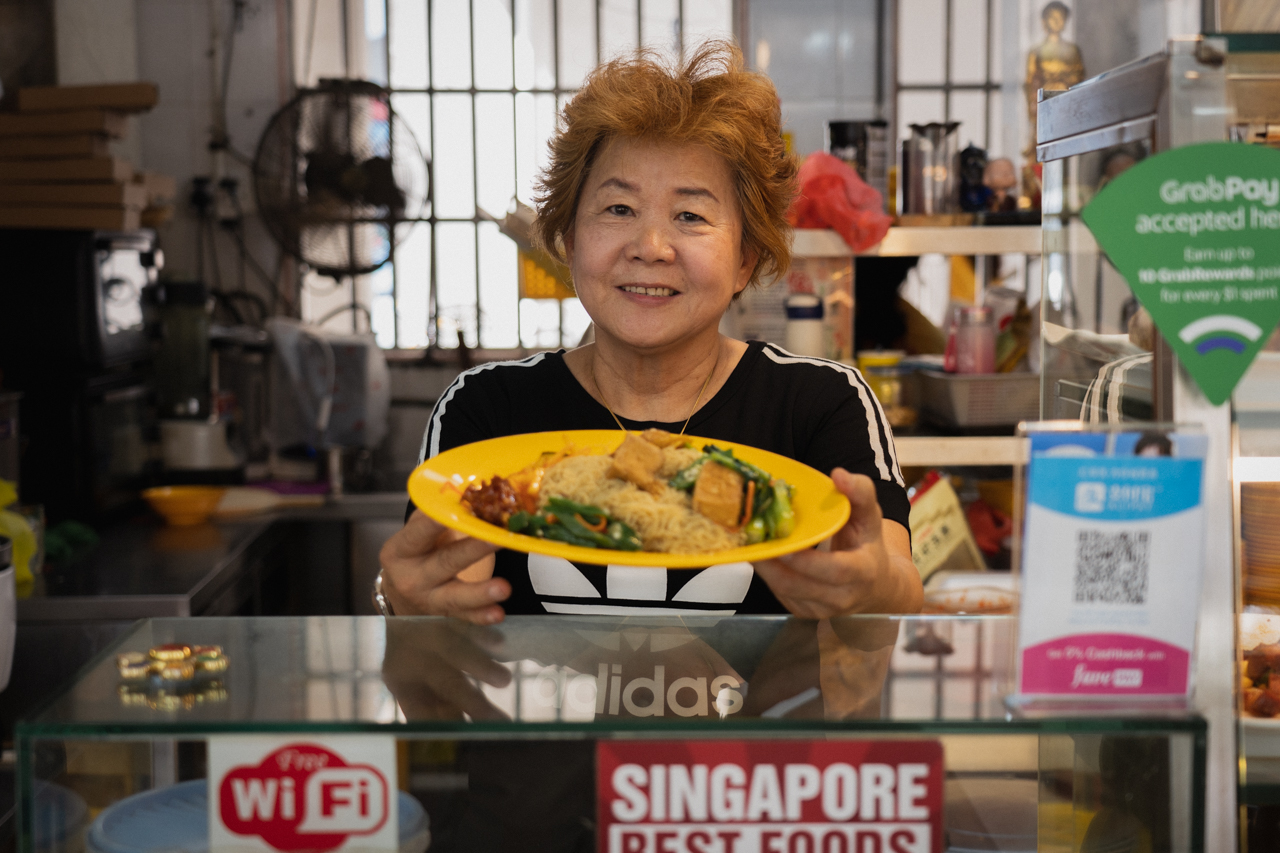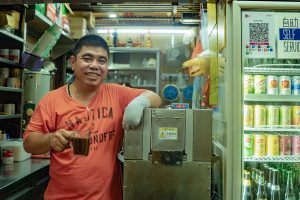Yet—even at this slow hour past the lunchtime peak—there is a constant queue for food that breaks this lethargy. Choruses of “laksa”, “chicken rice”, and the occasional “pi sa!” ebb and swell like waves.
“My food is cheap and delicious, that’s why it’s liked by all,” Choo Hong Eng (who is more affectionately known as Ping Jie), chef-owner of Kwan Inn Vegetarian at Geylang East, tells me.
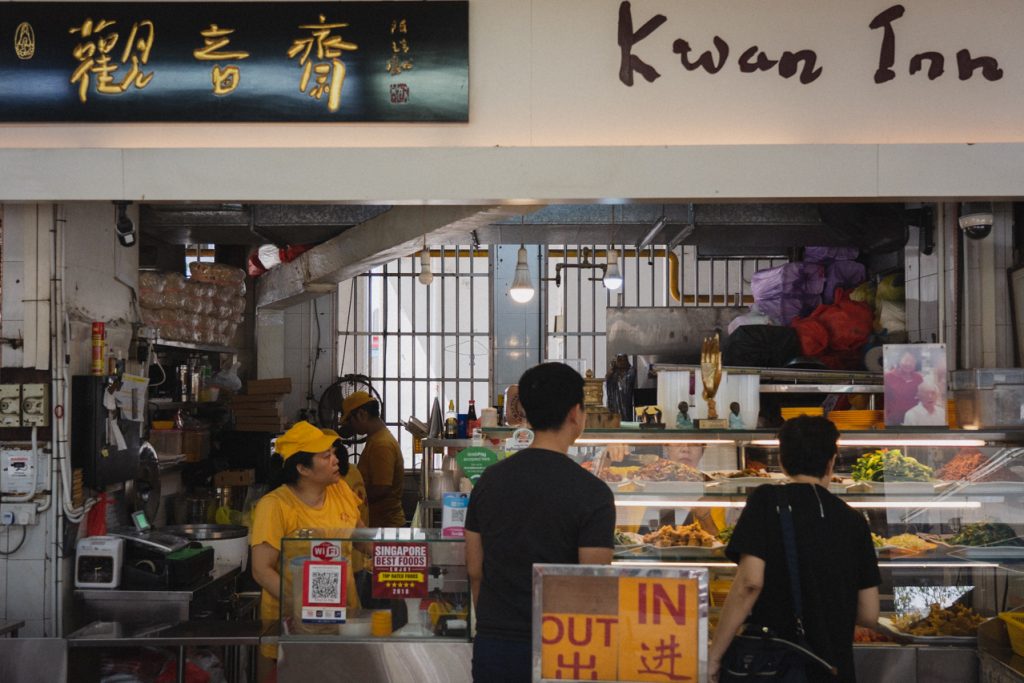
But when Ping Jie says her food is cheap, she is not mutilating the language. The numbers back her up: a bowl of laksa costs only $3 at her stall, while the chicken rice is $4. Ordering them, I feel as if I were back in the early 2000s.
“I’m not out to make money,” she explains. “I don’t need to earn much. Health and environment are more important. As long as I cover rent, expenses, and gas, I’m happy.
“Besides, the economy is bad now. It’s more important that I keep my prices low, so that I can cater to everyone.”
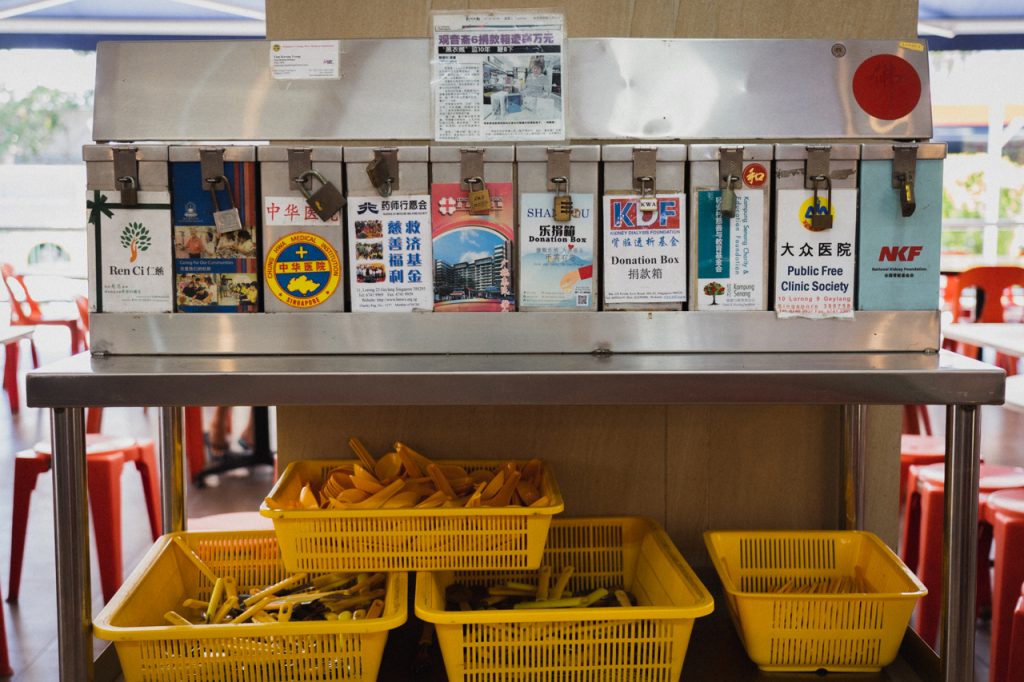
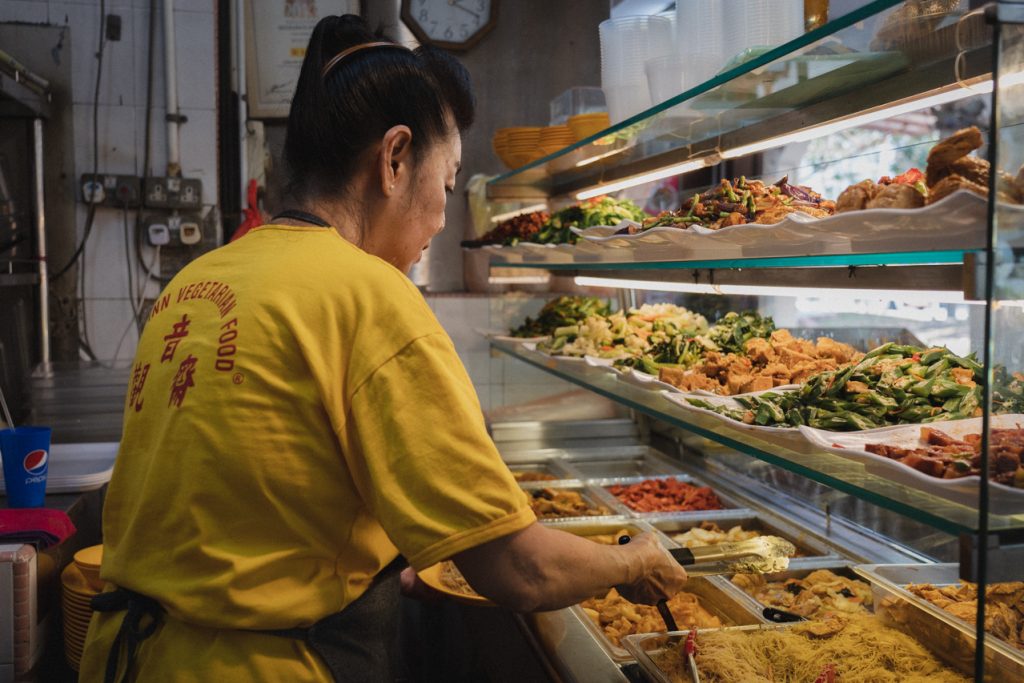
Price alone, however, cannot explain the appeal of her stall. A hawker selling $2 chicken rice might see an initial surge in popularity, but if the chicken is stringy and skimpy, and the rice drowning in tasteless oil, it isn’t likely to last long.
Brushing my doubts aside, Ping Jie is confident that I will like her food. She is personally behind all the recipes in her stall, having come up with them since she started cooking vegetarian cuisine more than 25 years ago.
She recalls how, when she opened her stall in Geylang, where we are currently speaking, it was “a place where even birds do not lay eggs”. Yet through word of mouth, it got so popular that Ping Jie took over the whole coffee shop to cater to an ever-growing crowd with her constantly expanding repertoire of dishes. This eventually attracted the attention of Kim San Leng’s boss, who acquired the stall.
But all these factoids and accolades play no factor in influencing my expert assessment of the food.
The proof is in the png, as they say. So I shovel the dishes into my mouth.
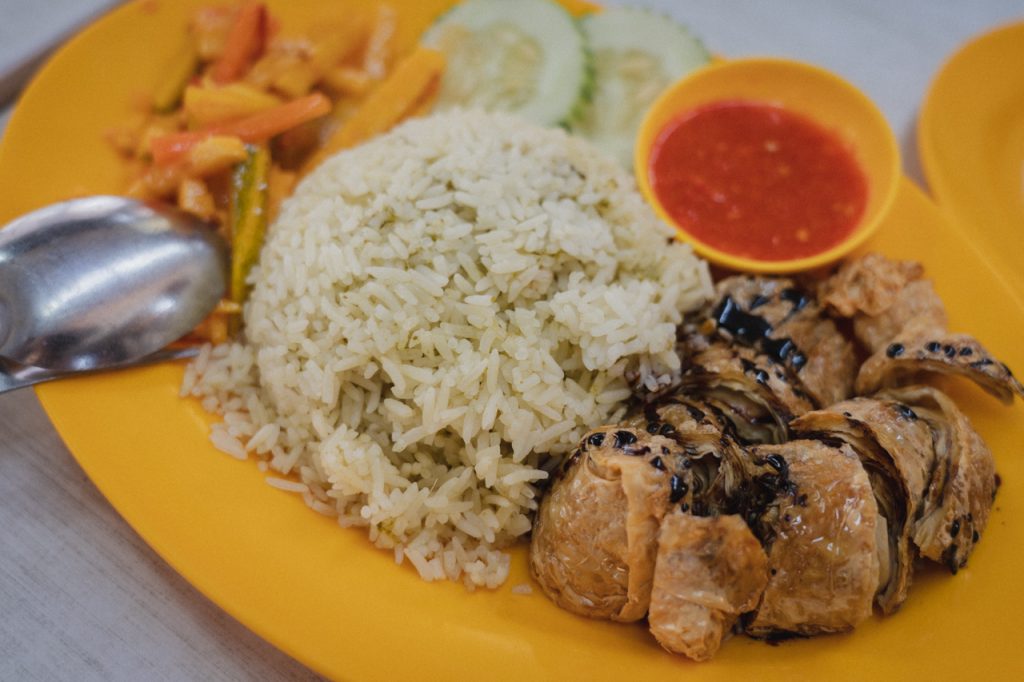
On the contrary, it’s something more complex and fragrant altogether. The rice, vegetal yet meaty, has playful notes of olive and sesame. The ‘chicken’ comprises rolls of fried beancurd skin; while you lose the meaty chew of breast or thigh, you gain in savouring the best part of a roast chicken rice—the crispy, savoury skin—without having to deal with the typically dry meat. Or the guilt and one hour you spend on the treadmill thereafter.
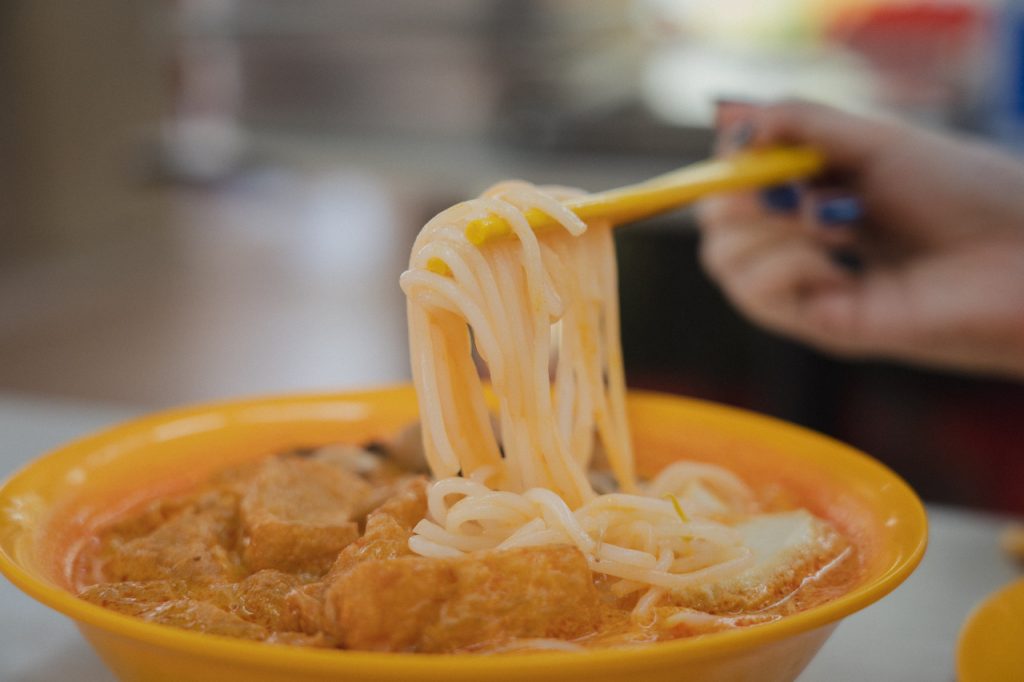
Moreover, unlike the diminishing returns a coconut-milk-based gravy brings, the laksa broth in front of me is dangerously drinkable. Before I know it, the bowl of laksa has dried up like a Johor reservoir in the dry season—and that’s keeping in mind that I am a health-conscious freak who never drinks laksa broth.
It’s an odd feeling—the reflexive guilt of finishing a rich broth softened by the knowledge that the soy-bean-based broth is actually healthy and, as a bonus, high in protein.

(We should have ordered the durian pizza, but alas, I only spot it when I stumble my way out of the coffee shop with a painfully full belly.)
But don’t take my word for it. Who am I but a lowly writer at a website named after an Asian staple?
Take it from Ping Jie. According to her, Kwan Inn Vegetarian is so popular and loved that it is even patronised by non-vegetarians who make the trek to Geylang just for a sip of her vegetarian laksa broth. Ordinarily, I’d be sceptical of such claims. But this time, it was easy for me to verify: I simply asked people in the perpetual queue if this were true—and it was.
Even though her stall retains its down-to-earth charms, recommendations of her food are flying miles above the ground. Ping Jie says proudly that her stall is featured in an in-flight magazine (AirAsia, she thinks, but I was unable to verify this independently).
With word of her stall crossing international boundaries, Ping Jie serves and entertains a disproportionately large number of tourists for a hawker stall—and for a vegetarian one, no less.
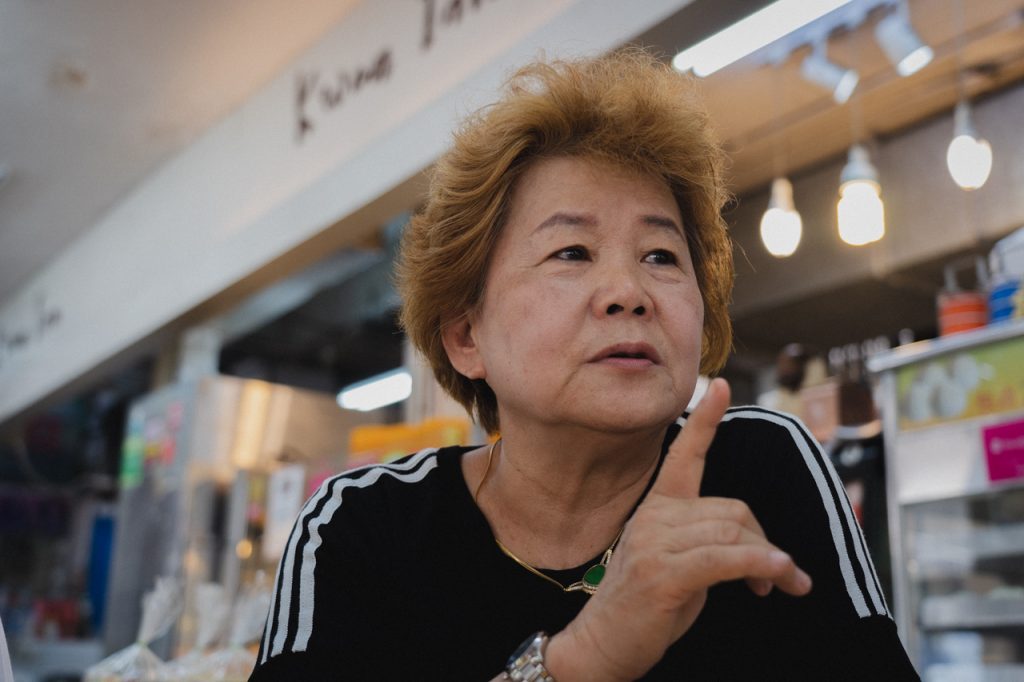
Our resistance locally, I think, is largely due to the fact that most of our cherished cuisine has its basis in meat produce. Think chicken rice, bak kut teh, chilli crab … and then remove the proteins from them. You get: rice, teh, chilli … which, all in all, still sounds like a pretty delicious meal to me, but would probably horrify voracious carnivores.
Yet, with her vegetarian cuisine, Ping Jie proves that going meatless can not only satisfy environmental and ethical concerns, but also elevate your palate.
The only thing I miss during my meal at Kwan Inn Vegetarian is a drink. As if on cue, a cup of tie guan yin tea magically appears by my side.
I can think of no other accompanying beverage more apt than that.
What are some Singaporean dishes you’d like to see a vegetarian option of? Tell us at community@ricemedia.co

